SSE has published its seven key steps it believes are needed for the UK to met it's 'Net Zero' targets.
As a general election has been announced in December, SSE has welcomed the political consensus that has been built around the need to urgently address climate change and end the UK's contribution. With the world coming to Glasgow for the UN climate change summit at COP26 at the end of 2020, there is the opportunity for the UK to show global leadership.
SSE believes that an ambitious, economy-wide, decarbonisation agenda – focussed on delivery – will put the UK on course to meet its net zero ambition.
The firm's 'seven key steps' include:
1. BACK A RENEWABLES LED TRANSITION TO NET ZERO SSE supports the UK's adoption of a net zero target and stands ready to play a key role in meeting that objective. We believe that achieving net zero will require the UK to go faster and further on decarbonising electricity as the driver for decarbonising heat and transport as well as increasing our 2030 ambitions. The falling cost of renewables provides an opportunity for an affordable and secure transition to net zero which delivers economic benefits across the UK. The UK should increase offshore wind ambition from 30GW by 2030 to around 40GW, unlocking more benefits to UK plc. This should be delivered by regular renewables auctions (CfDs) which will keep investment low risk and attractive to investors. Onshore wind should also be allowed to compete in these auctions. A high level of renewables on the electricity system must be accompanied by a mix of technologies to ensure it can be flexible, low carbon and secure. As part of that, more attention needs to be given to the policy framework to enable large scale storage, such as pumped hydro.
2. START TO DECARBONISE UK INDUSTRY BY DEVELOPING LOW CARBON INDUSTRIAL CLUSTERS FOR CARBON CAPTURE USAGE AND STORAGE A renewables-led transition to net zero must be supported by progressively lower carbon, flexible gas generation to maintain security of supply. SSE firmly agrees with the Committee on Climate Change conclusion that plans for early deployment of CCUS must be delivered with urgency and that CCUS is a necessity not an option for reaching netzero GHG emissions. Gas generation with CCUS and hydrogen power are a quick, cost-effective decarbonisation pathway in comparison with nuclear, which has shown itself to be unable to deliver within budget or on time. These solutions can also decarbonise industry and transport through clusters developed around CCGT anchor projects, potentially in the Humber, NorthEast Scotland and the Thames Estuary. To kickstart the deployment of these technologies we urgently need clear government support and policy measures to bring forward capture, transport and storage infrastructure which will be the backbone of low-carbon clusters.
3. ACCELERATE THE ROLL-OUT OF ELECTRIC VEHICLE CHARGING INFRASTRUCTURE TO DECARBONISE TRANSPORT The electrification of transport will improve local air quality, reduce carbon emissions and help integrate renewables into the electricity system. The electric vehicles (EVs) coming to market are quickly becoming more attractive to customers with increased range and better performance, at an ACCELERATING THE DELIVERY OF NET ZERO SSE MANIFESTO 2019 lower cost. However, we need to roll-out extensive charging infrastructure to meet growing demand, and some areas are always likely to be uneconomic and underserved. SSE believes that local authorities and local electricity network companies could assist delivery of EV charging in their area via a new partnership model. In conjunction with local authorities and transport authorities, they would co-identify areas where on-street charging infrastructure is required and create tenders for third parties to deliver the charging infrastructure.
4. PREPARE THE WAY FOR A DECISION ON HEAT DECARBONISATION BY THE END OF THE NEXT PARLIAMENT Decarbonising the way in which we heat our homes and businesses poses one of the most significant challenges in meeting net zero. SSE believes a decision on a pathway to low carbon heat will need to be taken by the mid-2020s at the latest, making it a crucial matter for the new Parliament to consider as a priority. The new Government should publish a heat roadmap, which advocates the widespread electrification of heat, considers the role of local authorities in developing regional solutions and aligns with the development of industrial clusters to prepare for the deployment of low carbon heat from 2025 onwards.
5. ENHANCE THE ABILITY OF THE REGULATOR TO ENCOURAGE LOW CARBON INVESTMENT SSE supports the National Infrastructure Commission's recommendation to amend the statutory duties of the energy regulator, Ofgem, to include net zero within the organisation's remit alongside customer protections. This would give the regulator greater scope to ensure that the regulatory framework for networks provides a platform for accelerated decarbonisation and the electrification of heat and transport. For example, it would help encourage anticipatory investment in network infrastructure to prepare for the rapid uptake of electric vehicles and electric heat in the lowest cost and least disruptive way.
6. SUPPORT PRIVATE INVESTMENT IN THE ENERGY SECTOR TO DELIVER IN THE PUBLIC INTEREST SSE believes that independent economic regulation of privately-owned energy networks has created an efficient, reliable network which is delivering in the public interest and facilitating the transition to a low carbon energy system. The UK's energy networks are among the highest performing in the world: playing a vital role in the decarbonisation of the power sector; attracting record levels of investment from private sources; achieving customer satisfaction that is at an all-time high; and costing customers significantly less than was the case under state ownership. Renationalisation of the grid would be costly, highly disruptive and jeopardises further progress at a critical time in the transition to a low carbon economy.
7. ENSURE A STABLE, TRANSITIONAL POLICY ENVIRONMENT IN THE UK AND IRELAND THROUGHOUT ANY BREXIT TRANSITION AND FUTURE RELATIONSHIP SSE advocates a stable, transitional policy environment in the UK and Ireland throughout any Brexit transition, including preserving the Single Electricity Market (SEM) on the island of Ireland and strong carbon pricing linked to the EU ETS to underpin decarbonisation efforts. Whilst SSE has carried out comprehensive planning for a 'no-deal' scenario, it continues to believe that this would be a sub-optimal outcome for the UK energy sector and consumers. SSE supports a close and comprehensive relationship between the UK and EU on energy matters as the best way to deliver decarbonised energy and address the shared challenge of climate change.
Construction News
05/11/2019
SSE Publish 'Seven Key Steps' To Meet Net Zero Target
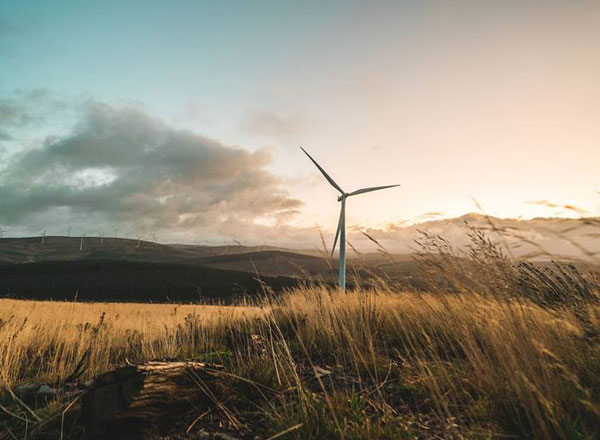

13/06/2025
The first completed section of Glasgow's ambitious £120 million-plus Avenues programme, the Holland and Pitt Street Avenue, has officially opened, marking a significant milestone in the ongoing regeneration of the city centre.
The newly completed avenue features a comprehensive transformation, incl
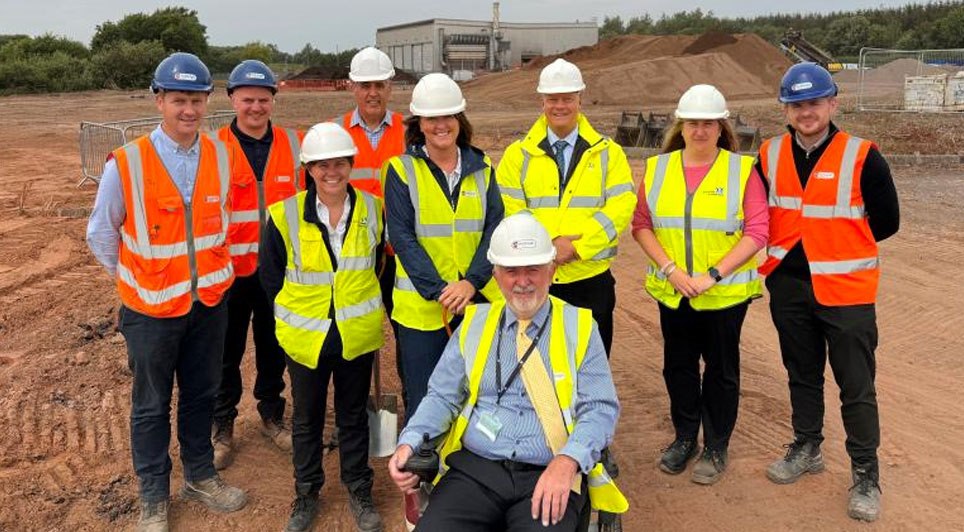
13/06/2025
Construction has officially commenced on the Dumfries Zero Waste Park (Dumfries ZWP), marking a significant milestone in Dumfries and Galloway Council's commitment to its Waste, Recycling and Reuse Strategy 2023–2030.
The £11.197m investment, drawn from the Council's approved 10-year Capital Invest
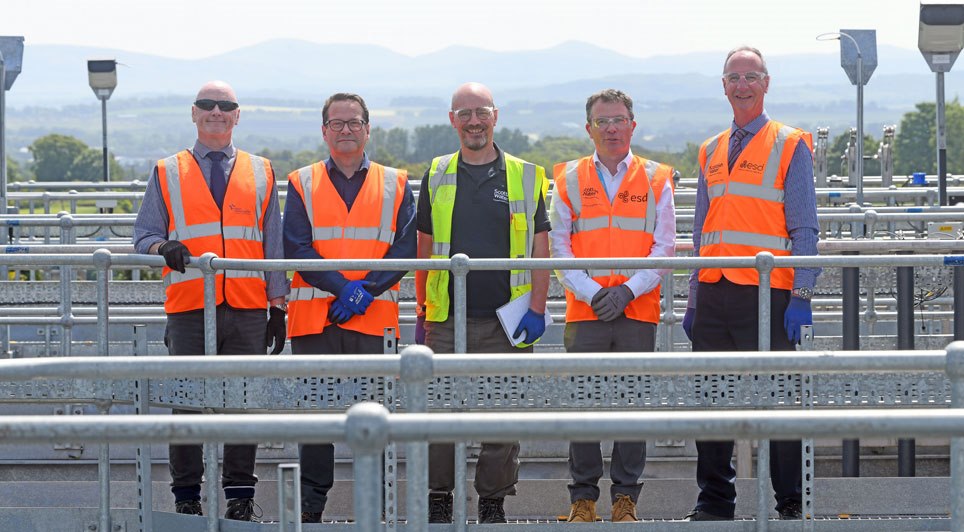
13/06/2025
Scotland's newest green wastewater treatment works (WWTW) in Winchburgh has been honoured with a prestigious sustainability award from The Royal Academy of Engineering.
The £35 million facility, owned and operated by Scottish Water and officially opened in October 2024, is designed to support a pr

13/06/2025
Forestry and Land Scotland (FLS) has initiated two public consultations on its proposed Land Management Plans for Glenbranter Forest and Strathlachlan Forest, both located on the Cowal Peninsula.
These consultations are part of FLS's routine ten-year review process for all land management plans, e
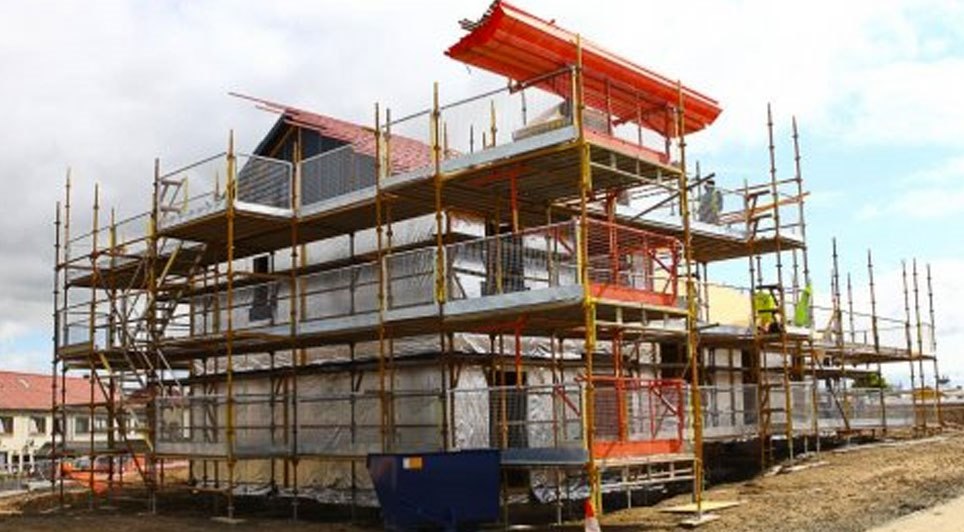
13/06/2025
Clark Contracts has been appointed by Fife Council to construct a new council housing development on Lochgelly Road in Lumphinnans.
The project, comprising 97 new homes, is expected to commence works in July 2025 with an anticipated completion in summer 2027.
The development will provide a divers
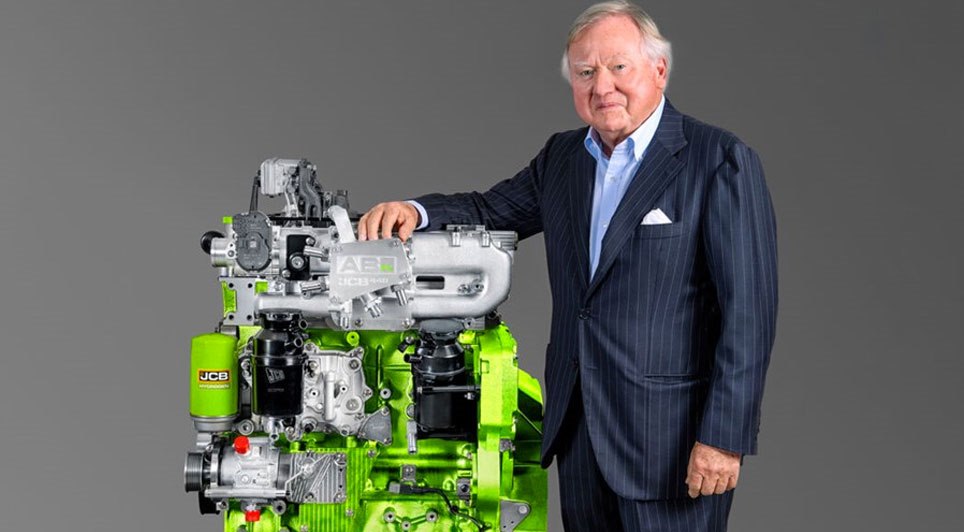
13/06/2025
JCB's groundbreaking hydrogen-fuelled engine is set to make its public debut at a UK agricultural event at the Royal Highland Show, running from Thursday, 19 June, to Sunday, 22 June, at Ingliston.
The innovative engine will be a central exhibit within the Royal Highland and Agricultural Show Socie
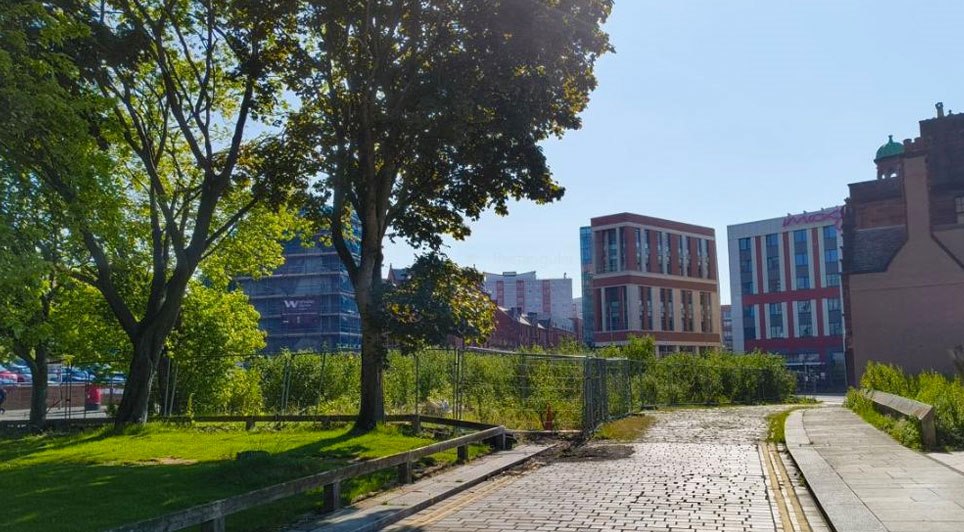
13/06/2025
Glasgow City Council has approved the disposal of a significant number of properties and land parcels across the city, paving the way for a wide range of new developments including social, mid-market, and private housing, supermarket expansion, student accommodation, retail spaces, and advanced manu
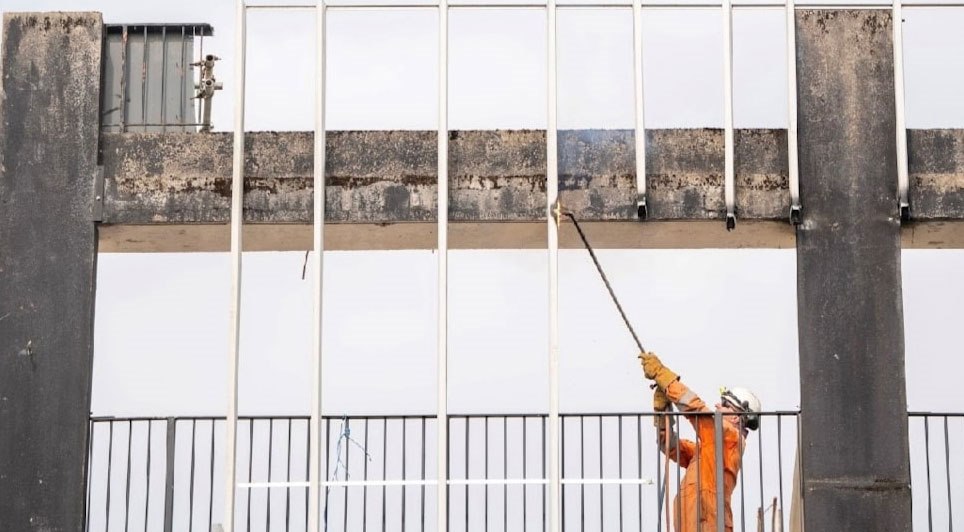
13/06/2025
The demolition of the multi-storey car park in Kilmarnock is progressing well, despite encountering a number of complex issues since work began. The structure is now expected to be fully removed by the end of July, with site tidying scheduled throughout August.
The ongoing demolition has inevitably
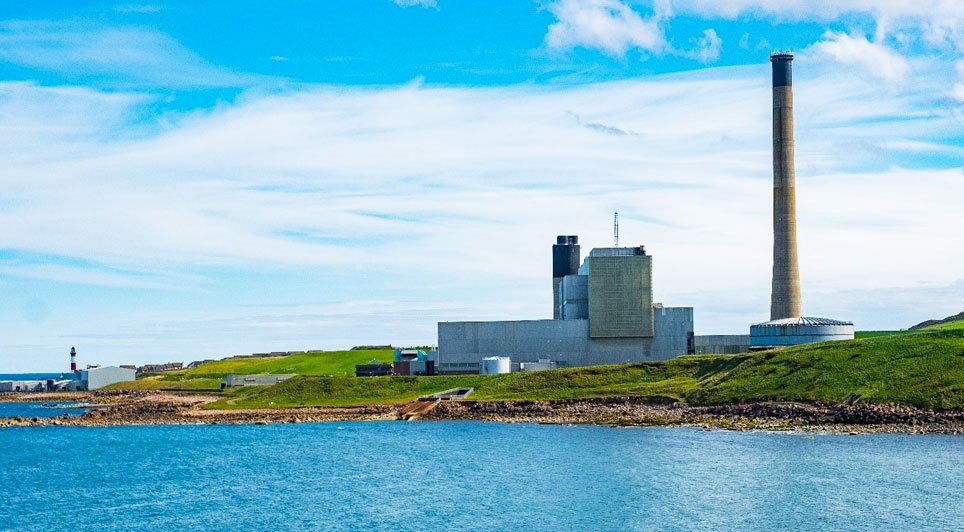
13/06/2025
Energy giant SSE has welcomed the UK Government's commitment to Carbon Capture and Storage (CCS) infrastructure in its recent Comprehensive Spending Review, specifically highlighting the positive implications for the Scottish Cluster and the Peterhead Carbon Capture Power Station.
Finlay McCutcheon

13/06/2025
Jaimie Steele, a Trainee Design Manager at GRAHAM Building, has been honoured with the Student of the Year award at City of Glasgow College for his outstanding performance in the HNC Architectural Technology with Digital Construction programme.
The award recognises students who excel in attendance,
 Scotland
Scotland UK
UK Ireland
Ireland London
London











